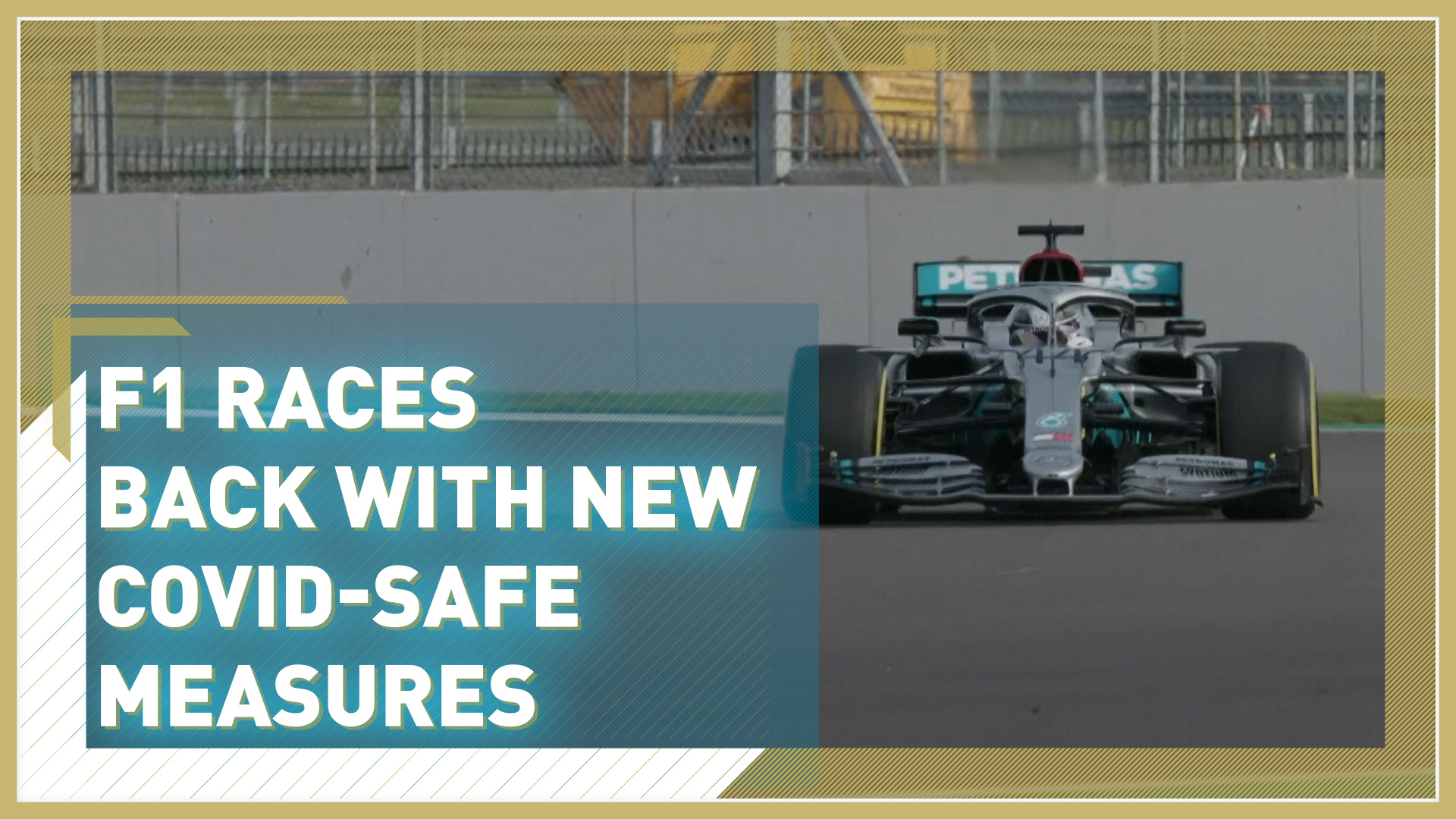02:14

Formula One is finally back on the track for the 2020 season after a four-month delay caused by coronavirus restrictions, with Valtteri Bottas winning the Austrian Grand Prix.
The Red Bull Ring in Spielberg, Austria, has been hosting the first of two consecutive race weekends, a first for the country as F1 tries to make up time in what is likely to be a tumultuous season, says motorsport commentator and F1 Official Alix Capper Murdoch Atkinson.
"Everything that is happening at the moment is very fluid because none of us knows what is going on," she said.
"They (FIA) are expecting to confirm the rest of the calendar in the coming weeks, but if they start to see an influx... the people that are traveling, then they are going to have to start thinking about other options, delaying, reducing the size of the championship."
Formula One was one of the first major sporting events to be hit by COVID-19 with the cancelation of the Australian opener in Albert Park, which had been scheduled for 15 March.
Since then, the Netherlands, Monaco, Azerbaijan and France have all canceled their races while Bahrain, Vietnam and Canada have postponed theirs.
FIA (Fédération Internationale de l'Automobile), the governing body behind Formula One, worked closely with the World Health Organization and the teams, to meet mandatory health and safety requirements to make this weekend's race in Austria happen.
All people attending a race must undergo tests both before traveling and on arrival at the circuit. They are then being tested every five days, using private medical teams, along with extra screening.

World Champion Lewis Hamilton talks to his Mercedes team. /CGTN
World Champion Lewis Hamilton talks to his Mercedes team. /CGTN
In a statement released prior to the start of Austrian Grand Prix, Formula One announced: "The FIA and Formula One can today confirm that between Friday 26 June and Thursday 2 July, 4,032 drivers, teams and personnel were tested for COVID-19. Of these, zero people have tested positive."
All F1 personnel must also wear a face mask at all times.
The size of each team has been reduced to limit the number of people on-site and follow strict social distancing measures must be adhered to. Races will also be run without spectators for the first time in Formula One history.
With the F1 calendar including countries with high COVID-19 infection rates, only eight races have so far been confirmed in what is usually a 20-plus race season.
Alix Capper Murdoch Atkinson says it has been really difficult for F1.
"They've had to choose locations that all the teams... can access easily. There is a reduced amount of staff, and it's not just the teams and drivers, it's also the officials. You know Formula One has up to 850 officials on every F1 circuit and that's taking away all the staff that are related to the teams."
Despite all the disruptions due to COVID-19, all drivers are excited to be back on track said Bottas.
"It feels really good, I've missed these feelings... it's something special when you push the car to its limit," he said.
"We've obviously been preparing for this for a long time, it feels so good, I can't say more than that and our team, an amazing job, we seem to be in our own league."
Check out The Pandemic Playbook, CGTN Europe's major investigation into the lessons learned from COVID-19.